JACKSON CONFRONTING THE MUTINEERS
The battle of Enitaohopco was a battle fought by Gen. Andrew Jackson with the Creek Indians at the Creek village of Anatichapko, January 24, 1814, and two days immediately following the battle of Emuckfau. On the night of January 23, Gen. Jackson’s army, fresh from the victory over the Indians at Emuckfau, but almost destitute of supplies, encamped near the Creek Indian village of Anatichapko. The camp was on the south side of the creek of that name, and a quarter of a mile from the ford, at which they had previously crossed. The ford was a deep ravine between two hills covered with dense shrubbery. It afforded admirable opportunity for an ambuscade, and this Gen. Jackson so much feared, that another ford was found 600 yards below the first.
On the morning of January 24 the march was resumed. The litters with the wounded were placed just behind the first guards. The three columns of the right, the left and the center were commanded respectfully by Cols. Perkins, Nicholas T. Stump, and William Carroll. The officers had been previously advised by orders as to the formation in case of an attack on front, rear or flanks.
See best-selling books by Donna R Causey
As the movement began, the Indians in ambush, discovering the unexpected change of route, left their hiding places, advanced and fired upon Capt. Russell’s company of spies which was bringing up the rear. The fire was returned, and the company gradually retired until it reached the rear guard. As the firing began, the advance guard, the wounded and a part of the men were already across the creek, and the artillery was just entering it. Gen. Jackson himself was in the stream when he heard the firing commence. He at once had an aide to go forward and form a line for the protection of the wounded, and he himself turned back to the east bank. Here he discovered a most disgraceful condition.
The rear-guard fled to the other side of the stream
Nearly the entire rear guard, panic-stricken, had plunged into the stream and were making their way to the other bank. Only a small force of about 100 men remained on the east side, and their fighting was to prove an offset to the panic of the rest. The force left to bear the brunt were Capt. Russell’s company of spies, about 25 of the rear guard under Col. Carroll and Capt. Quarles, and Lieut. Armstrong’s artillery company. Capt. Quarles soon fell. These gallant men and their comrades, with the greatest heroism, contended against many times their number. The Indians appreciating the situation were jubilant because of the disorder. Lieut. Armstrong, at the first fire of the Indians, had ordered a part of his company to advance, take possession of a hill, and hold it with their muskets, while he and others dragged the six-pounder from the creek to the same point.
Coosa River
The Cannon was loaded and fired
The cannon, placed in position, poured a fire of grapeshot into the ranks of the enemy. Again it was loaded and fired, and by it and with the fire of muskets, the Creeks were driven back. An incident,’ here to be related, due to the hurry and confusion incident to the first moment of attack, admirably illustrates the daring and courage of the brave pioneer fighters. The rammer and pricker were left tied to the limber, but in spite of this mishap two of the gunners, Constantino Perkins and Craven Jackson, were equal to the emergency, Perkins using his musket in driving down the cartridges and Jackson using his ramrod in preparing them for the match. The artillery company suffered severely. Lieut. Armstrong fell severely wounded, exclaiming “my brave boys, some of you may fall, but you must save the cannon.”
General Jackson restored order
In the meantime Gen. Jackson and his staff had, by very great exertion, somewhat restored order, and detachments were sent across to support the small force so bravely holding the crossing. Capt. Gordon’s company of spies, which was leading the army and was well across the creek, now recrossed, striking the Indians on the left. Notwithstanding he was severely wounded at Emuckfau, Gen. Coffee mounted his horse and was of great service to Gen. Jackson in stemming the tide of disaster and encouraging the men to meet their duty.
The tide of the battle began to turn
The tide of battle now began to turn. The Indians could not withstand the increasing attacks. They broke at all points and fled, throwing away blankets, packs and everything else impeding their flight. They were pursued more than 2 miles. The losses of the Americans in the battles of Emuckfau and Enitachopko, were 20 killed and 75 wounded. Some of the latter died.
According to Buell the loss of the Creeks in these two battles was 194 killed, and more than 200 wounded. The statement of Gen. Jackson is that the bodies of 189 Indians were found dead. He reported that only a guess could be made as to the number of wounded. In Eaton the statement is made that it was afterward learned from prisoners that more than 200 warriors never returned from these engagements. The forces of the Creeks in each engagement were much less than the Americans.
Indians boasted that they whipped Capt. Jackson and drove him to the Coosa River
Pickett states that they had less than 500 warriors. After burying the dead, Gen. Jackson resumed his march without molestation, and on January 27 arrived at Fort Strother. Notwithstanding their losses and their consequent inability to pursue, the Indians are stated, by Pickett, to have looked upon the retrograde movement of Gen. Jackson into Fort Strother as indicating a victory for them. They boasted that they “whipped Capt. Jackson and drove him to the Coosa River.”
Additional Note from Caro Harvey Feagin:
I just want to thank you for sharing the quote by Lt. Armstrong during the Battle of Emuckfau. This was Robert Wells Armstrong, my 3rd great grand uncle (brother to my 3rd great grandfather, William Armstrong.) Robert also fought with Andrew Jackson at the Battle of Talladega and was a Brigadier General. He became US Consul to Liverpool and lived in England for a number of years. He was postmaster at Nashville and owned and edited the Washington Union in D.C. He was a confidential advisor for President Polk. One of his most cherished possessions was Andrew Jackson’s sword left to him when Jackson died. It is very rewarding for me to see him in your newsletter. He was a fine patriot and warrior. So thank you! Caro Harvey Feagin [email protected]
SOURCES
- Frost, Pictorial life of Jackson 0.847), pp. 215-224;
- Parton, Life, of Jackson(1861), vol. 1. pp. 491-497;
- Buell, Life of Jackyon (1904), vol. 1, pp. 320, 321;
- Pickett, History of Alabama (Owen’s ed., 1900), pp. 5815S4; and
- Jenkins, Life of Jackson (1852), pp. 88, 89
- Eaton, Life of Jackson (1824), pp. 140-147;
Shop Amazon Gift Cards – Instant Delivery or Free One-Day Shipping
Read more stories in ALABAMA FOOTPRINTS Exploration: Lost & Forgotten Stories (Volume 1)


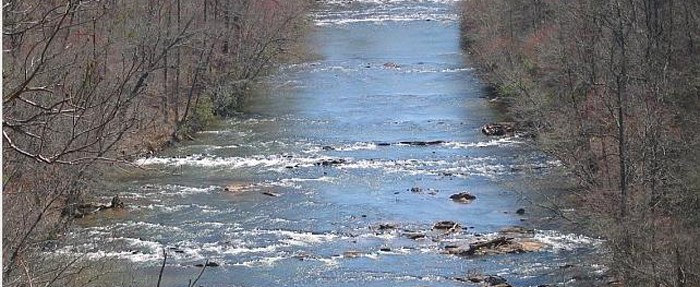
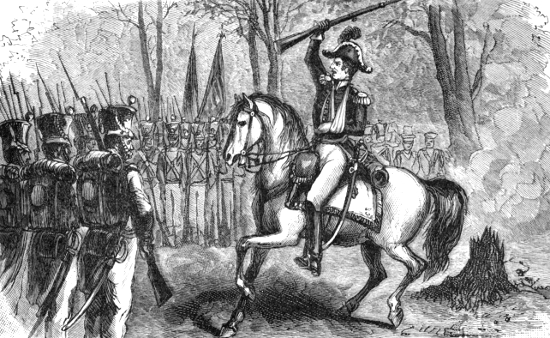
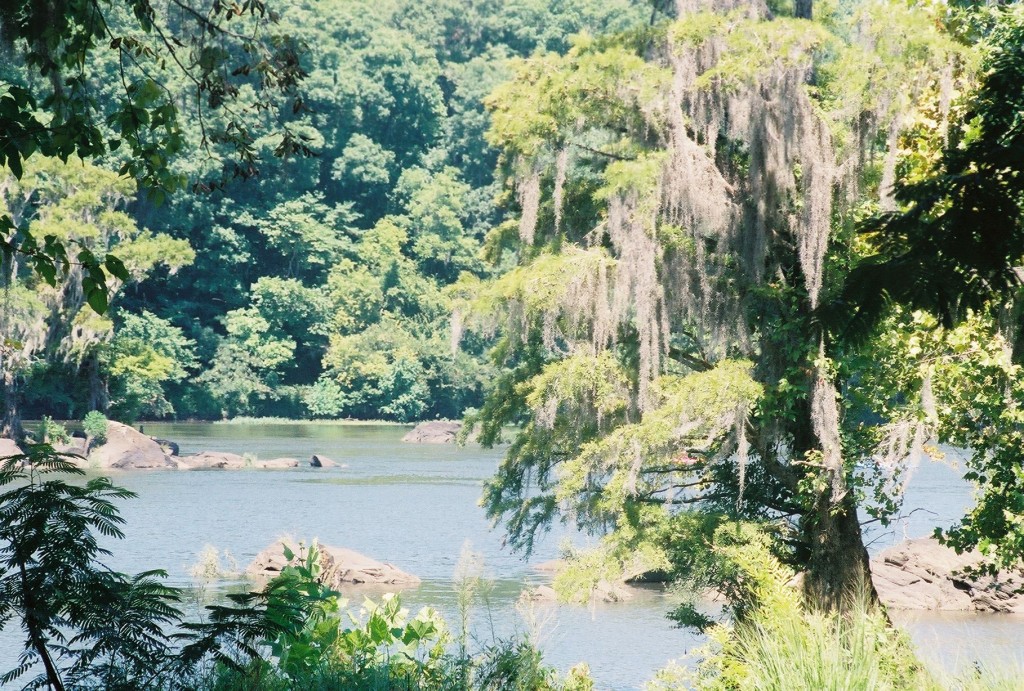
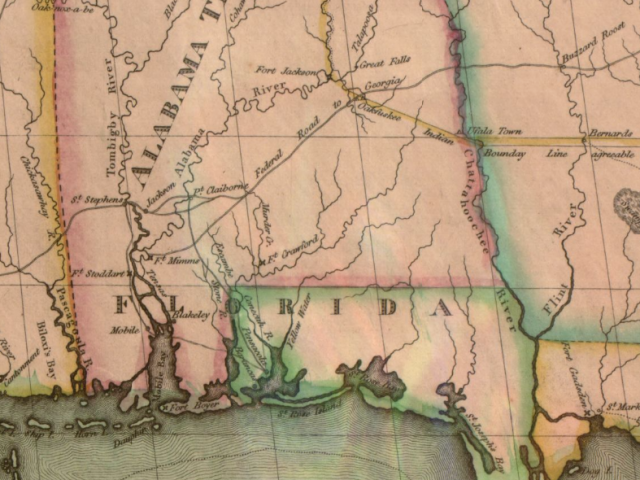
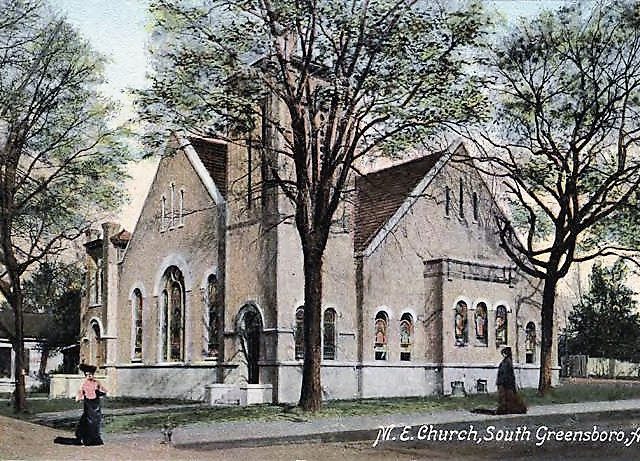

After all his friends with the Cherokee to lead him into this part of Alabama and unto New Orleans, Jackson returned the help by his Cherokee friends by sending them away from their lands they farmed and hunted for years into a trail of tears to the lands out West. Jackson was a type of man and President that would hug you and stab you in the back at the same time. Let history know the truth of this drunken tyrant who sent people into a life of misery and death from their native lands in Alabama and Georgia to a place to be enprisoned to never return. The Cherokee had their own language, capital, towns with streets, newspaper, and houses made of brick. Yes the southern Native Americans did not live in teepees. Visit Spring Place Georgia and see the Chief Vann House and visit the Cherokee Capital at New Echota. The federal government is still breaking treaties with the people. They will tell you to do something and in return this will happen. The politicians are still lying today.
Whenever we’re tempted to make gods and heroes of our American generals, we should remind ourselves of their human shortcomings. We have this tendency to worship the leaders of battles won and turn a blind eye to the cold, the antipathy, the treachery that then goes into making politically expedient decisions afterwards. They too often forget about what is just, what is morally right. They choose, instead, to do whatever makes them a hero in the eyes of their greedy constituents. Jackson is probably our history’s outstanding example of this.
I was just down at the battle site on Emuckfau
Love the personal note at the end!
Of all the people who have been discriminated and mistreated the American Indians suffered most. I am of Creek lineage and my ancestors were sent on the Trail of Tears.
[…] suddenly attacked again on January 24th, near Enitochopco, a Hillabee village, as he was retreating toward Fort Strother. His army was at one time in great […]
Go Creeks!!
Andrew Jackson rested his army in Jasper County Georgia during a 2 week downpour at Iron Springs, before moving on towards Alabama.
Killed two days earlier under Jacksons command…..https://www.findagrave.com/cgi-bin/fg.cgi?page=gr&GRid=65660008
That was not a battle, it was a massacre of the Creek people. Old, young and women were killed by Jackson. The written accounts call it a Victory for Jackson…………but when a Native American killed the whites, it was called a Massacre. This was a massacre of the Creek Nation.
We went to war with the Creeks after they slaughtered over 250 Alabama Settlers.
What would you do Jason Cotton if someone was invading your home? Would you defend it ? The whites broke all the treaties they ever signed with the Creek Nation and killed many more then 250 Native Americans in Alabama, Georgia, Tenn. and Florida.
[…] and Indian allies caused considerable losses on the Red Stick Creeks led by William Weatherford at Enitachopco Creek in […]
[…] I trace in his countenance the swiftness of pursuit, and sudden defeat of the Indians again at Emuckfau; much less his severe conflicts at the head of his gallant men at New Orleans. He is as mild as the […]
Hello Donna,
Norm here. I write, among other things, books about the world starting 89 years after it ends. My unique take weaves in real places and situations as occurred in Alabama’s rich pioneering heritage…which too few know about. Alabama was the wild southwest for a time.
My area of intense study is our period from 1540 to 1830 or so with the Creek War being the centerpiece.
Today I’m up at my workshop laying down notes for my next book in prep to generate a broad outline. So happens have most of the old Alabama pioneer books in PDF form and I had just gotten to Enitachopco (as my book calls it) for about the 10th time and decided to learn where it was.
Turns out that I have deer hunted not far from there as the crow flies.
My Indians were the Arbekas (Abekas)…everybody had their own spelling. They were affiliated with the grand poobah in Sylacauga of which DeSoto visited and treated awfully. And they could see the land of the Hillabees from their south windows.
Anyway, your page came up in my search and here I am!
I really wanted to write about our history but good folks like you already have it covered so I convert olden times into super new times. Same adventures, different characters
No other reason for writing, really, other than to say hello and thanks. You know, my uncle was an amateur archeologist and had quite a collection of ancient Indian artifacts from hereabouts. That was a looong time ago when I was a kid and never would I have dreamed that I would inherit his fascination with the old things.
Again, thanks and take care!
Your fan in Northeast Alabam near where the Creeks met the Cherokees
Norm
They were not mutineers. Their enlistment had expired
[…] and Indian allies caused considerable losses on the Red Stick Creeks led by William Weatherford at Enitachopco Creek in […]